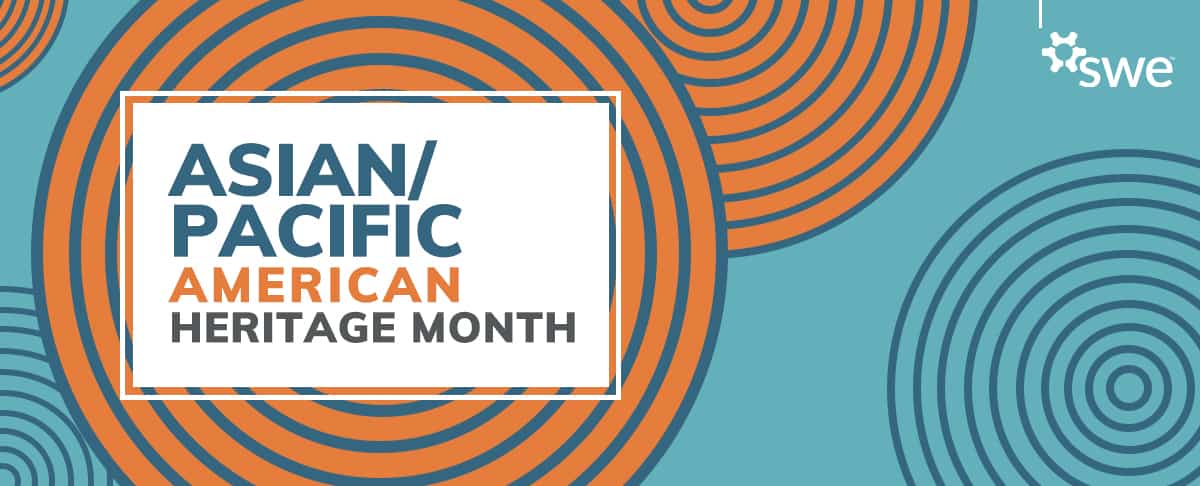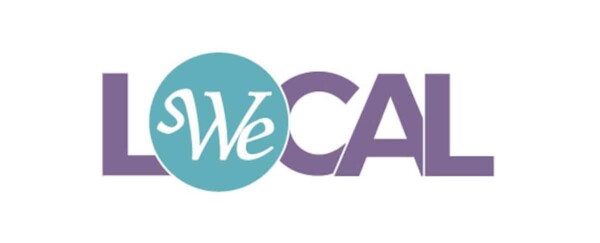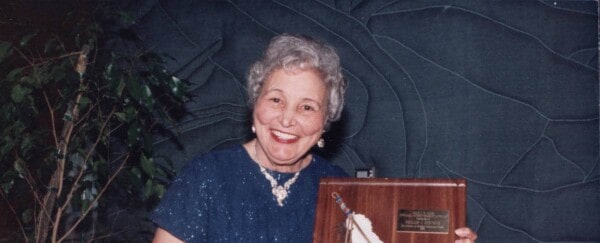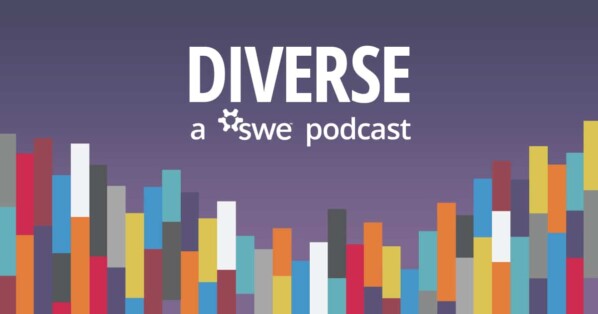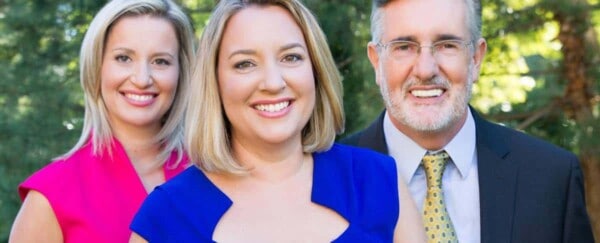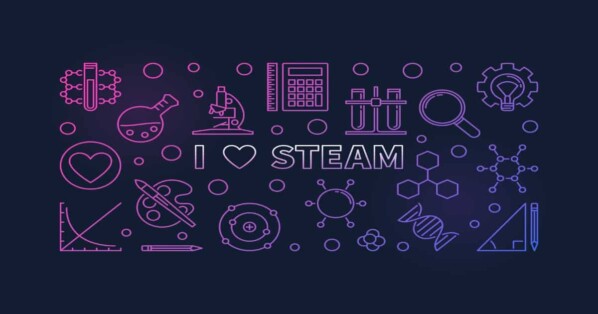In celebration of Asian Pacific American Heritage Month, SWE will be highlighting Asian American women engineers in a series of blog posts.
In this article, we will be highlighting Ramona Anand (Founding advisor SWE at Lorain County Community College/ Project Manager), Dr. Sreyoshi Bhaduri (Manager, Global People Research & Analytics at McGraw-Hill), Dr. Jessica Shang (Assistant Professor of Mechanical Engineering at the University of Rochester), and Dr. Zhiwei Mao (Associate Professor of Electrical Engineering at Fairleigh Dickinson University).
Ramona Anand (Founding advisor SWE at Lorain County Community College/ Project Manager)
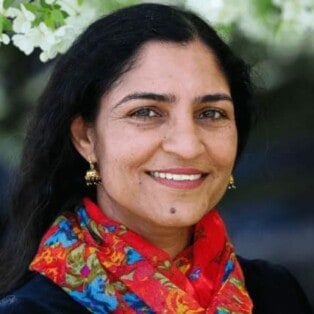
Ramona Anand has served as a Project Manager since 2008 and also teaches in the Engineering Department at Lorain County Community College (LCCC). Prior to this, Ms. Anand has worked internationally. She holds M.S. Electrical Engineering and M.S. in Teaching and Training Technical Professionals from the University of Akron. She is the founding advisor of the SWE section at LCCC. She has received Advancing Leader, Engaged Advocate, Army Partnership, and Bronze Mission awards from SWE. Also, she has been a SWE member for over ten years and actively promotes recruitment, retention and visibility of women and minorities in STEM. She serves on several credentialing committees and advisory boards, and volunteers as a panelist with NSF.
Tell us about your background: Where are you from, and what attracted you to the world of engineering or STEM?
I am an Electrical Engineer born and brought up in India. I have served internationally in teaching and administrative positions. I have an M.S. in Electrical Engineering with a specialization in Instrumentation and Controls followed by an M.S. in Teaching and Training Technical professionals from the University of Akron. I currently serve as Project Manager and am also teaching at Lorain County Community College in Elyria, Ohio. A quest for knowledge and curiosity to venture in an untrodden path attracted me towards the world of engineering.
What has been the biggest obstacle you’ve overcome to be where you are today?
I was the only female student when I was pursuing my engineering education. Today, I am the founding advisor of the SWE section at Lorain County Community College, the first community college to have a group of its kind. I am working tirelessly to improve recruitment, retention and visibility of women and minorities in STEM.
What has been your personal experience as a (double) minority in STEM? What surprises (good or bad) have you encountered?
At times, I have to prove myself and swim against the tide, each step of the way. I must go above and beyond and the extra mile not only to prove myself but also to inspire other female candidates. The members of the SWE community are my biggest support and strength.
How important is being a role model for the next generation to you?
Being a role model for the next generation is of utmost importance and is crucial for me. I want to contribute to and ensure a promising path is paved for the upcoming generation. Moreover, being a role model promotes STEM education and encourages women and minorities to aim higher.
What advice would you offer to girls or young women who are interested in STEM but doubt their capabilities or potential?
I would strongly advise never to quit and to keep moving forward in chasing one’s dreams.
Dr. Jessica Shang (Assistant Professor of Mechanical Engineering at the University of Rochester)
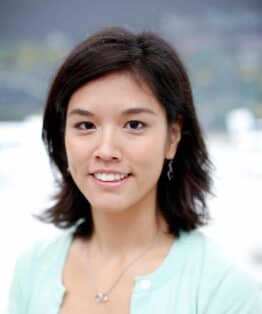
Jessica Shang holds a BA from Harvard University, an MPhil from the University of Cambridge, and a Ph.D. in Mechanical and Aerospace Engineering from Princeton University. Prior to joining UR, she did her postdoctoral work at the Stanford School of Medicine and received an NIH T32 postdoctoral fellowship with the Stanford Cardiovascular Institute. She does research in fluid mechanics, ranging from flows in the brain to high-energy-density flows.
Tell us about your background: Where are you from, and what attracted you to the world of engineering or STEM?
I’m from Silver Spring, Maryland. Since I was a kid, I’ve always been pretty hands-on, whether it was with arts and crafts or tools or Legos. In hindsight, engineering was a good fit, but it’s hard to point to anyone pivotal moment. So many things — and people — contributed along the way.
What has been the biggest obstacle you’ve overcome to be where you are today?
I’ve struggled, and do struggle, with imposter syndrome. Some days I think, “I’ve earned this” or “I can do this”, and some days, not so much. I still sometimes get anxious giving talks or putting myself out there, but like with many hard things, I get through it with lots of practice or pep talks (self-administered or otherwise).
What has been your personal experience as a (double) minority in STEM? What surprises (good or bad) have you encountered?
My experience has changed at every stage of my life, so this is a hard question to answer. Frankly, I think it helps me move forward with the present to not dwell too much on the impact being a double minority has, or had, on my life so far. I’m not ambivalent about it, but I think it’s more pressing to build an equitable future for everyone in STEM.
How important is being a role model for the next generation to you?
We all find something admirable and relatable, and a touch of je ne sais quoi in our role models. I’m trying to be a good scientist/engineer, person, and a parent, which are goals enough for me. If someone sees a glimmer of a role model in there somewhere, that’s great, but I don’t intentionally aspire to be one. I advise and mentor where I can, but it’s important to acknowledge that my experience doesn’t necessarily translate to yours.
What advice would you offer to girls or young women who are interested in STEM but doubt their capabilities or potential?
Self-doubt happens to everyone, including the very successful. A little humility is a good thing! It means you can work towards something bigger and better; the important thing is to not let it stop you from doing what you’re interested in.
Dr. Zhiwei Mao (Associate Professor of Electrical Engineering at Fairleigh Dickinson University)
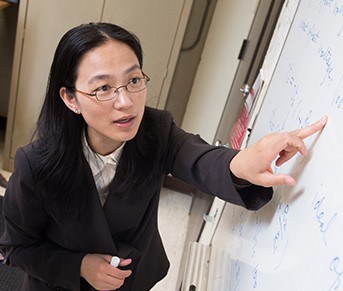
Zhiwei Mao received her B.Sc. and M.Sc. degrees from Beijing University of Posts and Telecommunications in Beijing, China, and her Ph.D. degree in electrical engineering from the University of Victoria in Victoria, British Columbia, Canada. She is now an Associate Professor of Electrical Engineering with the Gildart Haase School of Computer Sciences and Engineering at Fairleigh Dickinson University (FDU) in Teaneck, New Jersey. Before she joined FDU, Zhiwei worked at a Canadian university for five years.
Tell us about your background: Where are you from, and what attracted you to the world of engineering or STEM?
I received my B.Sc. and M.Sc. degrees from Beijing University of Posts and Telecommunications, and my Ph.D. degree in electrical engineering from the University of Victoria. I am now an Associate Professor of Electrical Engineering with the Gildart Haase School of Computer Sciences and Engineering at Fairleigh Dickinson University (FDU). Before I joined FDU, I worked in a Canadian university for five years. When I was in high school, I was good at math and science. Inspired by my father who was a civil engineer, I was quite interested in how the knowledge I learned in math and science classes can be applied to help shape and improve people’s everyday lives. Therefore, when it was time for me to go to university, I chose engineering as my major and was eager to become an engineer of a new era.
What has been the biggest obstacle you’ve overcome to be where you are today?
The biggest obstacle I have overcome has been myself. There were many times when I felt the goal was too difficult to achieve and was thinking about quitting. Nevertheless, each time I managed to persist a little longer, things changed after a while. I have been so lucky to have supportive family, friends, classmates, teachers, supervisors, colleagues, etc. inspiring, helping and accompanying me all the way through my career journey.
What has been your personal experience as a (double) minority in STEM? What surprises (good or bad) have you encountered?
As a minority in STEM, I have always found support from and helped to offer support to peers and girls/women in similar situations as myself. I found this support was quite critical for me to be where I am today. I was surprised, or more precisely, impressed by the vast help and support the community offers to a minority like me. When I was a Ph.D. student, we had an informal engineering/computer science girls club and met during lunch. We chatted and discussed almost everything, like the course and project selection, seminar and conference information, teaching assistantship experiences, research projects, and of course, topics related to everyday life. In my first job, the university had a female faculty club, which met regularly. We chatted about teaching, research, funding applications, and how to balance career and family life. I was also one of the advisors of the Go Engineering Girls club there. Regularly we invited high school girls to campus to participate in engineering-related activities on weekends. At FDU, I am the faculty advisor of the FDU section of SWE and the deputy Co-Director of the GEE (Girls Exploring Engineering) STEM Outreach Program. The GEE program started in Fall 2018 and runs each semester on eight Saturdays, nurturing curiosity and making STEM education accessible and engaging for middle school girls from underrepresented and low-income households.
What advice would you offer to girls or young women who are interested in STEM but doubt their capabilities or potential?
Dream big, work hard and speak out. You can never achieve a goal if you do not set one. You can never achieve a goal without working hard for it. Remember that you are not alone. Speak out your difficulties and even your feelings. You will get much more support and help than you can ever imagine.
What advice would you share with your younger self?
Open your mind even more, and then you will be able to see even more opportunities and possibilities out there.
Dr. Sreyoshi Bhaduri (Manager, Global People Research & Analytics at McGraw-Hill)
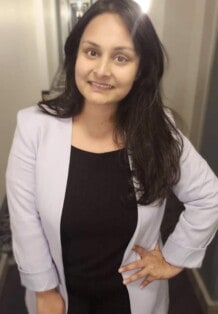
Dr. Sreyoshi Bhaduri leads Global People Research & Analytics at McGraw-Hill, where she works on research leveraging employee data to generate insights for policy decisions. Dr. Bhaduri has a Ph.D. in Engineering Education and Master’s degrees (M.A. and M.S.) in Statistics and Mechanical Engineering, from Virginia Tech. Her research areas include women in STEM and inclusion and diversity initiatives within the tech industry.
Tell us about your background: Where are you from, and what attracted you to the world of engineering or STEM?
I was born in Pune, a city in Western India, to an army doctor and an educator. As a child, I was road-tripping on one of the highest motorable roads in the world, visiting turbine chambers of Baglihar Dam over the Chenab river and learning about New Austrian Tunnelling methods in the Himalayas. These experiences gave me a perspective of the scale of operation that engineers undertake to solve challenges. I was fascinated by problem-solving and was curious about innovative methods and tools. I naturally gravitated towards a Bachelor’s degree in Mechatronics Engineering. I traveled to the United States to pursue my Master’s degree in Mechanical Engineering. I learned about intersectionality and the challenge of lack of representation so I was determined to understand it further. I thought about how to make engineering classrooms more inclusive and welcoming. These interests led me to pursue a Ph.D. in Engineering Education from Virginia Tech. Since then, I have been leading Global People Research & Analytics at McGraw-Hill. Through my current role, I can continue to work on changing the inequities in industry and academia and address these global challenges using innovative research methods.
What has been the biggest obstacle you’ve overcome to be where you are today?
Some of my most vivid recollections of childhood are from the times when my parents earned their doctorate degrees. I was 3 or 4 years old, and was fascinated by my parents whom I felt were superheroes as inventors and scientists. I wanted to emulate them and earn a PhD! However, since I had not experienced gendered roles at home, stereotypes and societal norms of the real world stood out as a stark contrast when I chose to step into engineering. I faced many forms of discouragement in the guise of concern. People thought I should pursue more “feminine” careers like teaching or communication instead of engineering. These stereotypes augment the myth that women can not strive for leadership positions across academia or industry. Such thinking can lead womxn to face imposter syndrome, negatively impacting their aptitude, interest, and capability to succeed. I learned that the strides I take as an engineer today are enabled by the grit and persistence of the women who came before me. I am extremely glad I persisted.
What advice would you share with your younger self?
I recently re-read “A Room of One’s Own” and was thinking deeply about Virginia Woolf’s wise words, “By hook or by crook, I hope that you will possess yourselves of money enough to travel and to idle, to contemplate the future or the past of the world, to dream over books and loiter at street corners and let the line of thought dip deep into the stream.” If I could share one piece of advice with my younger self, it would be to cherish the time idling and loitering and exploring and getting lost. I would let the younger me know that time spent ideating, contemplating, or dreaming is neither time lost nor procrastinated, but rather, the momentum gained and investment made. I would also encourage myself to read more (more fiction specifically). Finally, I would recommend a younger me to be more proactive about knowing the works of, reaching out to, and citing women (authors and researchers and scientists and engineers).
What advice would you offer to girls or young women who are interested in STEM but doubt their capabilities or potential?
The advice that I have for girls or women interested in STEM is the same that my mother offers me. She reminds me of the Sanskrit saying, which ends as – विद्याधनं सर्वधन प्रधानम् ॥ Roughly translated, the saying encapsulates the sentiment that what you have learned, through experiences or education, is not in vain. In fact, it is your most prized possession. Your education cannot be stolen from you nor will it ever be a burden. It will only increase even when shared. I urge young girls and women interested in STEM to collect as much learning as they can – through courses, internships, projects, volunteering. They should explore interests and pursue a wide range of opportunities to find what they love. They should resist being siloed by seeking out multi-disciplinary projects with diverse individuals so they can contribute their unique perspectives and voices. I urge them to persist and to be the best that they can. Finally, they should learn to be an ally for others. Investing time and effort in building friendships, finding community and strengthening networks will help them not only bounce back when they fall but propel them further and further.
Related Content
- Asian Pacific American Heritage Month: Highlighting Asian American Engineers Pt. 1
- Asian Pacific American Heritage Month: Highlighting Asian American Engineers Pt. 2
- Asian Pacific American Heritage Month: Highlighting Asian American Engineers Pt. 3
- Podcast: Balancing Work and Mom Life as an Engineer- APAHM
- Podcast: Celebrating APA Heritage Month with Past SWE President, Nora Lin
- Three Generations of Women Engineers: A Mother’s Day Reflection
- Navigating Contemporary Woman-In-Engineering-Hood

